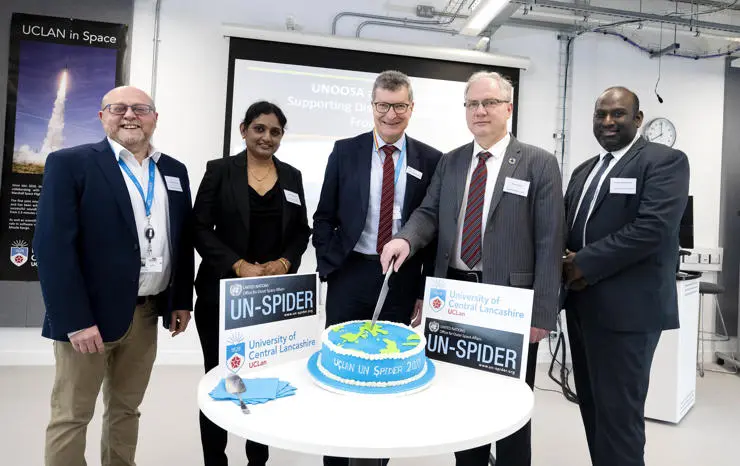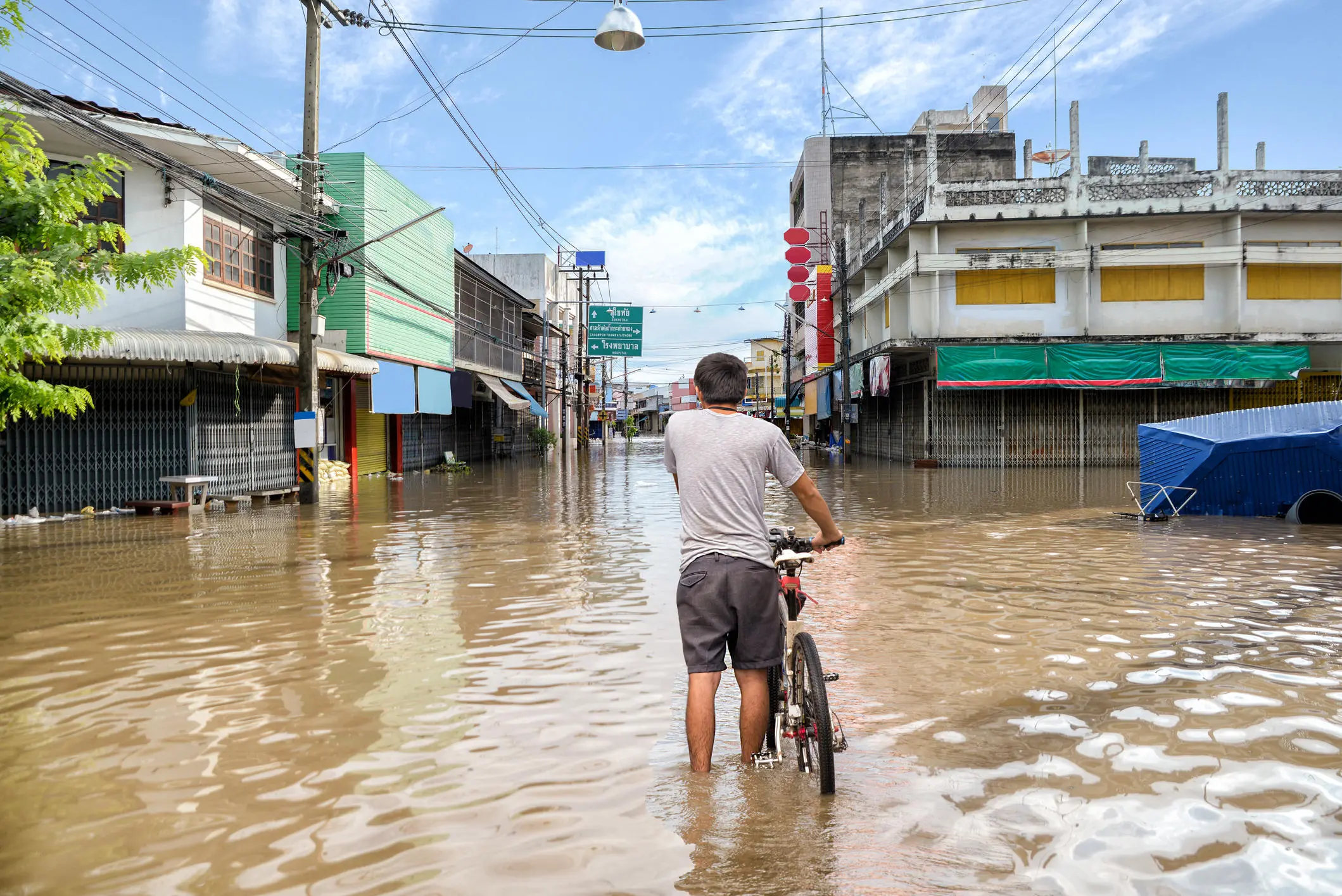The University will host the UN’s Office for Outer Space Affairs Regional Support Office for disaster management efforts
The University of Central Lancashire (UCLan) has been chosen as the UK’s only base for a programme implemented by the United Nations (UN).
UCLan will host the sole Regional Support Office (RSO) for the UN Office for Outer Space Affairs (UNOOSA), which is responsible for promoting international cooperation in the peaceful uses of outer space.
Researchers will be specifically working with the team behind the UN’s platform for Space-based Information for Disaster Management and Emergency Response (UN-SPIDER).
UN-SPIDER was established in 2006 after recognising disaster risk management and emergency response communities, particularly in developing countries, are unable to get access to all space-based technologies to help address natural hazards. This may be due to not recognising the usefulness of space-based information or not having the right capabilities or financial resources in-country to obtain or extract the necessary data.
"It is testament to the impactful work we are undertaking that we will be UK link for UN-SPIDER"
— Dr Komali Kantamaneni, Senior Research Fellow in coastal science and the environment at UCLan
The multi-national group aims to bridge the technology gap to ensure all countries can access all types of space-based Earth observations to both prevent and mitigate disasters. Some of the ways include advisory missions, technical training, and immediate emergencies and disasters’ support.
UCLan researchers will add their expertise to the work already being undertaken by the global research team, as well as highlighting and promoting the work of UN-SPIDER to UK organisations.
Dr Komali Kantamaneni, Senior Research Fellow in coastal science and the environment at UCLan, has worked with the UN-SPIDER programme for several years. She said: “The UN-SPIDER team considers research strength when looking to set-up a support office in a Member State. UCLan is developing expertise in climate change and coastal erosion, and it is testament to the impactful work we are undertaking that we will be UK link for UN-SPIDER.”
"We are grateful to welcome UCLan to our RSO family and look forward to expanding access to space solutions together"
— Acting Director of UNOOSA Niklas Hedman
Professor Robert Walsh, academic lead for UCLan’s activities in space, added: “Both nationally and internationally, this is a prestigious role for the institution to take up. Complementing the broad-based research we already undertake in the growing space sector, the University’s support for the UN-SPIDER office demonstrates a focus on tackling the real challenges that climate change is bringing to communities all around the world.”
The Regional Support Office was officially launched by Lóránt Czárán, Chief of the Vienna Branch of the UN-SPIDER Programme, at an international workshop held on UCLan’s Preston Campus recently.
Acting Director of UNOOSA Niklas Hedman said: “Space assets are instrumental for disaster management and building resilience and we must ensure benefits of these technologies are made available to everyone. That requires international cooperation. The UN-SPIDER RSOs network is a prime example of the results we can achieve by joining forces. We are grateful to welcome UCLan to our RSO family and look forward to expanding access to space solutions together.”

